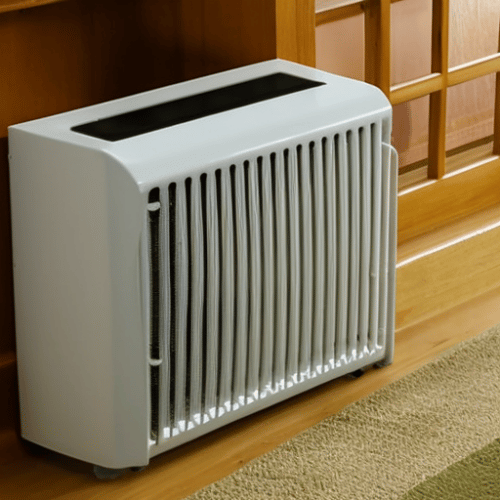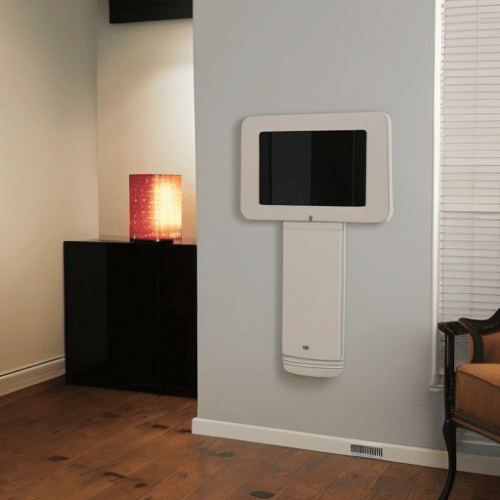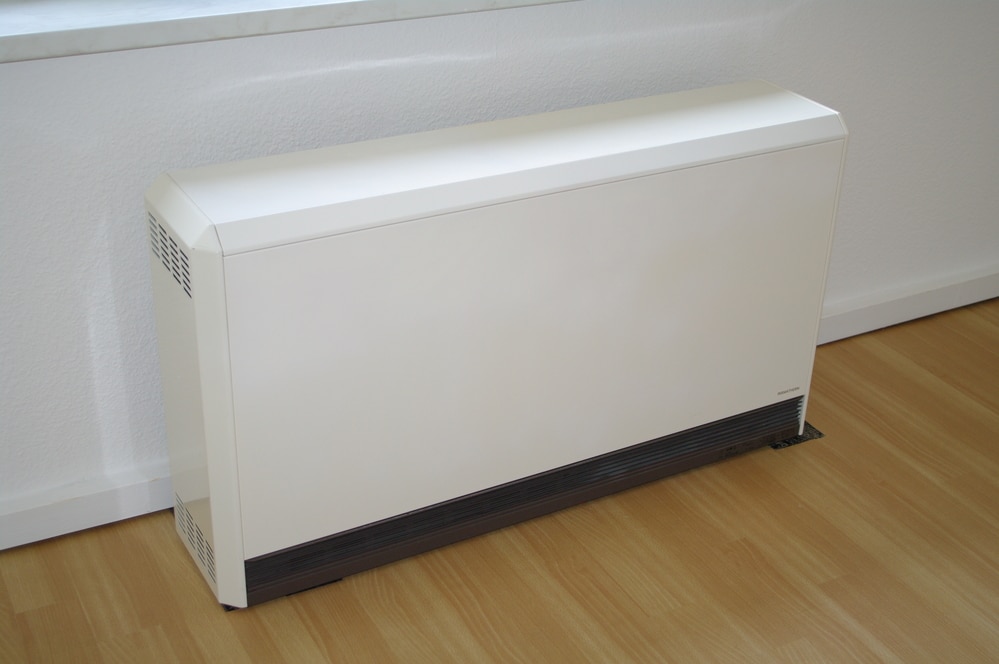Last Updated on
Are you considering heating up your home with electric wall heaters or storage heaters? Both of these options have their pros and cons, so it can be difficult to decide which is the right choice for you. In this blog post, we’ll compare electric wall heaters vs storage heaters in order to help make an informed decision about what’s best for your home. So keep reading if you want to find out more about electric wall heaters vs storage heaters.
Table of Contents:
- Electric Wall Heaters: Pros and Con
- Storage Heaters: Pros and Cons
- Which is Better for Your Home?
- FAQs in Relation to Electric Wall Heaters vs Storage Heaters
- Conclusion
Electric Wall Heaters: Pros and Con
Electric wall heaters are a great way to keep your home warm and cosy during the cold winter months. But before you make the switch, it’s important to understand both the pros and cons of electric wall heaters.
Pros:
Cost:
Electric wall heaters can be more cost-effective than other heating systems because they don’t require any additional installation costs. Plus, they use less energy than traditional heating systems, which means lower monthly bills.
Installation:
Installing an electric wall heater is relatively easy and straightforward compared to other types of heating systems. All you need is a few basic tools and some electrical wiring knowledge or experience. The whole process should take no more than a couple of hours from start to finish.
Energy Efficiency:
Electric wall heaters are highly efficient when it comes to energy consumption; in fact, many models have been designed with special features that help conserve energy while still providing ample warmth for your home or office space. This makes them ideal for those looking for ways to reduce their carbon footprint without sacrificing comfort levels inside their homes or workplaces.
Safety:
One of the biggest advantages of electric wall heaters is that they are much safer than traditional gas-powered units due to their lack of open flames or combustible materials like wood chips or coal used in fireplaces and wood stoves respectively. Additionally, most modern models come equipped with built-in safety features such as automatic shutoff switches if temperatures get too high, making them even safer for families with small children or pets who may accidentally touch hot surfaces on these units.
Con:
Noise Operation:
While electric wall heaters tend not to be as noisy as some other types of heating systems, there may still be some noise associated with running one depending on its size and power output. To minimize this potential issue, look for models that feature quiet operation technology so you won’t have to worry about disrupting conversations in your living room while trying to stay warm indoors during chilly weather conditions outside.
Electric wall heaters are an efficient and cost-effective way to keep your home warm, but they come with their own set of drawbacks. Now let’s take a look at the pros and cons of storage heaters.
Storage Heaters: Pros and Cons
Storage heaters are a popular choice for those looking to keep their homes warm and cosy during the winter months. They provide an efficient way of heating up your home without breaking the bank, but there are some pros and cons that come with them.
Pros:
Cost:
Storage heaters can be relatively inexpensive to purchase and install compared to other types of heating systems. Additionally, they require less energy than traditional radiators or boilers, meaning you’ll save money on your electricity bills in the long run.
Installation:
Installing storage heaters is much simpler than installing central heating systems as they don’t require any complicated plumbing work or extensive wiring. This makes them ideal for people who want a quick and easy solution for keeping their home warm without having to pay out for expensive installation costs.
Energy Efficiency:
As mentioned above, storage heaters use less energy than traditional radiators or boilers which means you won’t have to worry about sky-high electricity bills during the colder months of the year. Furthermore, many models now come with thermostats so you can control how much energy is used at any given time making it easier to manage your energy consumption more effectively over time.
Cons:
Noisy Operation:
Some of the older models of storage heaters can be quite noisy when operating, due to fans inside them turning on and off periodically in order to keep temperatures within a room consistent. However, newer models are not as loud thanks largely to technological advancements such as quieter motors being used.
Lack of Precise Temperature Control:
A potential downside of storage heaters is that they do not provide precise temperature control, making them an unsuitable option for those who need to maintain specific temperatures in certain rooms. This is due to the difficulty (or even impossibility) of adjusting temperatures precisely enough using a single unit alone.
Space Requirements:

Before purchasing a storage heater, it is important to consider whether or not it will fit into its intended space. Most units are quite bulky so make sure there is plenty of room available before committing financially; otherwise, it could end up taking up too much valuable floor space and leave little room for furniture etc
Storage heaters offer some unique advantages, but also come with their own set of drawbacks. In the next section, we’ll look at which type of heater is best suited for your home.
Which is Better for Your Home?
When it comes to heating your home, there are two main types of electric wall heaters: storage and convection. Both have their pros and cons, so which one is best for you?
Cost Comparison

Upfront costs for electric wall heaters tend to be higher than those for storage heaters. This is because electric wall heaters require installation by a qualified professional, which can add significantly to the overall cost. On the other hand, storage heaters are relatively easy to install yourself, so you don’t need to pay an installer.
In terms of ongoing running costs, both types of heater will use electricity but there are some differences in how they work that can affect your bills. Electric wall heaters generate instant warmth as soon as they’re switched on whereas storage heaters use cheaper night-time electricity tariffs (Economy 7) and store up energy during off-peak hours so that it’s available throughout the day at a lower rate than normal daytime rates. As such, if you plan ahead and set your timer correctly then you could save money with a storage heater compared with an electric wall heater over time – although this depends on how much energy you actually use.
When it comes to cost, electric wall heaters and storage heaters have their own advantages and disadvantages. However, installation considerations are also important when making a decision on which type of heater is best for your home.
Installation Considerations

When it comes to installing electric wall heaters and storage heaters in your home, there are a few things you should consider.
First, electric wall heaters require an electrical outlet nearby for power. If one isn’t available, you’ll need to hire an electrician to install one before the heater can be used. This is especially important if you’re looking at hardwired models that must be connected directly to your home’s wiring system.
Storage heaters also require electricity but they don’t have to be wired directly into the mains supply as their electric counterparts do; instead, they use a standard plug socket which makes them easier and less expensive to install than electric wall heaters. However, because of this, storage heaters tend to take up more space than other types of heating systems as they need enough room around them for air circulation so that the stored energy doesn’t overheat or cause damage.
It is important to consider ventilation requirements when deciding which type of heater to install in your home. Both electric wall heaters and storage heaters produce some amount of moisture during operation, so it is essential that there be adequate ventilation nearby such as windows or vents near the unit itself or along walls where heated air may accumulate and condense on cold surfaces like window sills or furniture legs.
Finally, it is worth noting that both storage and electric wall heaters are relatively easy to DIY projects if you feel confident enough with basic tools and wiring skills. Safety should always be the priority; make sure all connections are secure before turning on any power source and consult with a qualified professional if unsure about anything related to the installation process or safety regulations applicable in your area.
FAQs in Relation to Electric Wall Heaters vs Storage Heaters
Are electric heaters better than storage heaters?
Electric heaters are becoming increasingly popular in the UK due to their convenience and energy efficiency. They provide instant heat with adjustable temperature settings, allowing you to tailor your heating needs precisely. Electric heaters also require less maintenance than storage heaters, as they don’t need regular cleaning or topping up of fuel. In terms of cost-effectiveness, electric heaters can be cheaper to run than storage heaters over a long period of time, although this will depend on the type and size of heater chosen. Ultimately it comes down to personal preference – both types have their advantages and disadvantages so consider what is most important for your home before making a decision.
Is it cheaper to use a space heater or wall heater?
It depends on the size of the space and how often you plan to use it. Space heaters are typically cheaper upfront, but they can be more expensive to run in the long-term as they tend to use more energy than wall heaters. Wall heaters require installation and may have higher initial costs, but their efficiency means that running costs are usually lower. Ultimately, it is important to consider both options carefully before making a decision based on your individual needs and budget.
Conclusion
In conclusion, when it comes to electric wall heaters vs storage heaters, there is no clear winner. It really depends on your individual needs and preferences. If you’re looking for a more efficient heating solution with minimal installation costs, then an electric wall heater may be the right choice for you. On the other hand, if you want a more cost-effective option that requires less maintenance over time, then a storage heater might be better suited to your home. Ultimately, choosing between electric wall heaters and storage heaters is an important decision that should not be taken lightly.
Paul is the type of person who never met a problem he couldn’t fix. He can always be found tinkering with something in his house, even if it isn’t broken! His tips and tricks are often shared on our site. He’s the one you call when something breaks because he has been known to improvise fixes for everything from leaky faucets to malfunctioning dryers.



